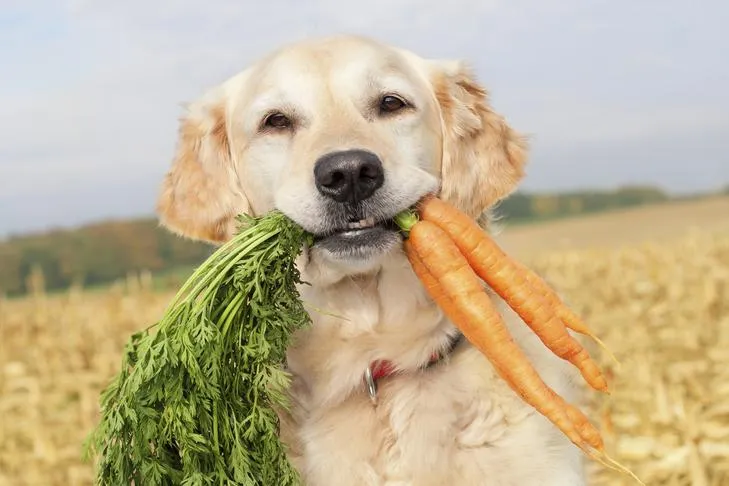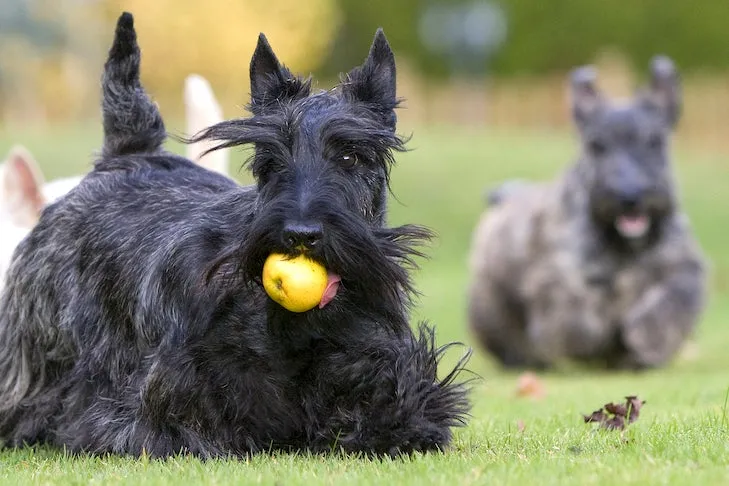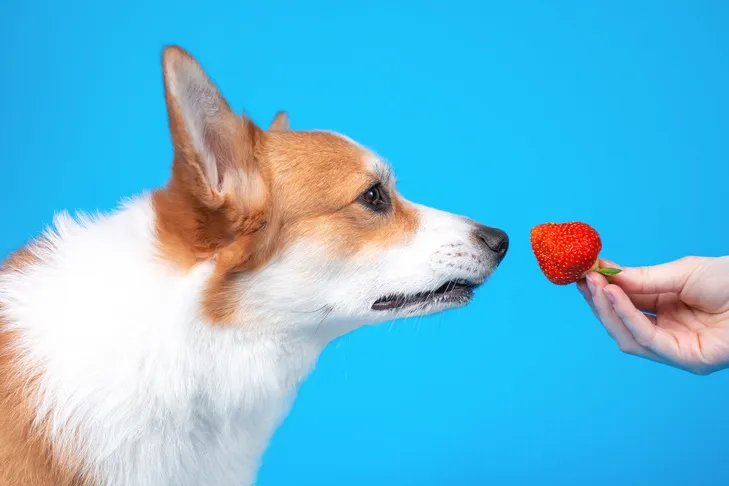Sharing snacks with our beloved canine companions is a common joy for many pet owners. However, it’s crucial to understand that not all human foods, even healthy vegetables, are safe for dogs. While some vegetables offer valuable nutrients, others can be detrimental to their health, causing mild discomfort or even severe toxic reactions. As dedicated pet parents, distinguishing between dog-friendly and forbidden greens is paramount to ensuring our furry friends thrive. This guide from Dog Care Story delves into the specifics, highlighting what veggies dogs can’t eat, alongside safe alternatives, to help you make informed dietary choices for your dog’s well-being. Understanding their unique digestive systems and nutritional needs is the first step in providing a diet that supports a long, healthy, and happy life.
Understanding What Your Dog Can and Cannot Eat
Dogs process foods differently than humans do. While they are omnivores and can derive some benefits from fruits and vegetables, these should typically be offered as occasional treats rather than a staple part of their diet. Their primary nutritional needs are met by a balanced dog food. Introducing new human foods without proper knowledge can lead to long-term health problems or, in severe cases, be life-threatening. It’s essential to educate yourself on what fruits and vegetables are not good for dogs to prevent accidental poisonings or health complications.
Safe and Healthy Vegetables for Your Canine Friend
Many vegetables can be a nutritious and delicious addition to your dog’s diet when given in moderation. These options provide essential vitamins, minerals, and fiber without unwanted calories or harmful compounds.
Broccoli
Broccoli can be safe for dogs in small quantities as an occasional treat. It’s rich in fiber and vitamin C and low in fat. However, broccoli florets contain isothiocyanates, which can cause mild to severe gastric irritation in some dogs. Tough stalks may also pose a choking hazard or cause esophageal obstruction. It’s best to offer cooked broccoli to minimize these risks.
Brussels Sprouts
Packed with nutrients and antioxidants beneficial for both humans and dogs, Brussels sprouts can be a healthy snack. Nevertheless, excessive amounts can lead to significant flatulence in dogs, so moderation is key.
Carrots
Carrots are an excellent low-calorie snack, high in fiber and beta-carotene, which converts to vitamin A. The crunchy texture of carrots also helps clean your dog’s teeth. They are a common ingredient in many dog foods and treats.
 Golden Retriever holding several orange carrots in its mouth.
Golden Retriever holding several orange carrots in its mouth.
Celery
Celery offers vitamins A, B, and C, along with other nutrients that can promote a healthy heart and potentially aid in fighting cancer. Additionally, celery is known for its ability to freshen doggy breath.
Green Beans
Plain green beans—whether chopped, steamed, raw, or canned (no-salt)—are safe for dogs. They are rich in essential vitamins and minerals, high in fiber, and low in calories, making them a great dietary supplement. Frozen green beans can also be a refreshing enrichment snack.
Peas
Green peas, snow peas, sugar snap peas, and garden or English peas are all acceptable for dogs occasionally. They provide various vitamins, minerals, protein, and high fiber content. Opt for fresh or frozen peas and avoid canned varieties with added sodium.
Spinach
While dogs can eat spinach, it’s not among the top recommended vegetables due to its high oxalic acid content. Oxalic acid can hinder calcium absorption and potentially lead to kidney damage if consumed in very large quantities. While a small amount is unlikely to harm, it might be safer to choose other vegetables.
Vegetables Dogs Must Avoid: Crucial Information for Their Safety
When considering what veggies dogs can’t eat, this section is paramount. Certain vegetables, though seemingly harmless or even healthy for humans, can be toxic or offer no real benefit to dogs, making them best avoided entirely.
Asparagus
Asparagus isn’t necessarily toxic to dogs, but it provides no real nutritional benefit that makes it worth feeding. It’s too tough to be eaten raw, and by the time it’s cooked soft enough for a dog to digest, most of its nutritional value is lost. There are many better vegetable options if you want to share a healthy treat with your dog.
Mushrooms
Wild mushrooms are a definitive no-go for dogs. Of the thousands of mushroom species, 50-100 are known to be toxic, and consuming poisonous varieties can cause severe illness or even be fatal to dogs. While washed mushrooms purchased from supermarkets are generally fine, it’s safest to avoid all mushrooms to prevent any risks.
Onions
Onions, along with leeks and chives, belong to the Allium plant family, which is highly poisonous to most pets, especially cats. Dogs should never eat onions. Ingesting onions can lead to the rupture of red blood cells, causing symptoms like vomiting, diarrhea, stomach pain, and nausea. Japanese breeds like Akitas and Shiba Inus are particularly susceptible, but all dogs are at risk. Always ensure leftovers containing onions are secured where your dog cannot access them.
 Rottweiler laying down in a yard with its head tilted, observing.
Rottweiler laying down in a yard with its head tilted, observing.
Fruits Dogs Can Enjoy in Moderation
Beyond vegetables, several fruits can be healthy and enjoyable treats for dogs when given in appropriate portions. These provide vitamins, minerals, and antioxidants, contributing to overall health.
Apples
Apples are an excellent source of vitamins A and C, and fiber. They are low in protein and fat, making them a great snack, especially for senior dogs. Always remove the seeds and core, as apple seeds contain small amounts of cyanide.
 Scottish Terriers playing energetically in a grassy field.
Scottish Terriers playing energetically in a grassy field.
Bananas
Bananas are a fantastic low-calorie treat rich in potassium, vitamins, biotin, fiber, and copper. They are low in cholesterol and sodium, but due to their high sugar content, they should only be given as an occasional treat.
Blueberries
Blueberries are a superfood packed with antioxidants, fiber, and phytochemicals, benefiting both humans and canines by preventing cell damage. They make excellent training treats due to their small size.
Cantaloupe
This fruit is rich in nutrients, low in calories, and a good source of water and fiber. However, cantaloupe is high in sugar, so it should be given in moderation, particularly to overweight or diabetic dogs.
Cranberries
Both fresh and dried cranberries are safe for dogs in small amounts. They contain antioxidants, but their tartness might not appeal to all dogs. Avoid sweetened dried cranberries to prevent adding unnecessary sugar to your dog’s diet.
Cucumbers
Cucumbers are particularly beneficial for overweight dogs as they contain almost no carbohydrates or fat and are full of hydrating water. They are also loaded with vitamins K, C, and B1, along with potassium, copper, magnesium, and biotin.
 Russell Terrier humorously posing with cucumber slices placed over its eyes.
Russell Terrier humorously posing with cucumber slices placed over its eyes.
Mango
Mangoes are a sweet tropical treat, offering vitamins A, B6, C, and E, as well as potassium, beta-carotene, and alpha-carotene. Always remove the hard pit, as it contains small amounts of cyanide and is a choking hazard. Due to high sugar content, mango should be an occasional treat.
Oranges
Oranges are safe for dogs in small quantities, though their strong citrus scent might deter some. They are an excellent source of vitamin C, potassium, and fiber. Vets recommend giving only the juicy flesh, removing the peel and seeds, as the peel can upset their digestive system.
Peaches
Small amounts of fresh or frozen peaches (with the pit completely removed) are a good source of fiber and vitamin A. Peach pits contain cyanide and must be safely discarded. Avoid canned peaches due to high sugar syrups.
Pears
Pears are a good snack, high in copper, vitamins C and K, and fiber. Similar to apples, remove the pit and seeds, which contain traces of cyanide, and cut the flesh into bite-sized chunks. Steer clear of canned pears with sugary syrups.
Pineapple
A few chunks of pineapple can be a great sweet treat for dogs, provided the prickly peel and crown are removed. This tropical fruit is full of vitamins, minerals, and fiber, and contains bromelain, an enzyme that aids in protein absorption. Avoid canned pineapple with added sugars.
Pumpkin
Pure pumpkin puree is a healthy food for dogs, known for its ability to relieve both diarrhea and constipation. It’s rich in antioxidants. Always choose 100% pumpkin puree and avoid pumpkin pie filling, which contains spices and added sugars.
Raspberries
Raspberries are safe for dogs in moderation, offering antioxidants, low sugar and calorie content, and high fiber, manganese, and vitamin C. Their anti-inflammatory properties make them particularly good for senior dogs with aging joints. However, raspberries contain small amounts of xylitol, so limit consumption to no more than 8 ounces of fresh or frozen berries.
Strawberries
Strawberries are packed with fiber and vitamin C, and contain an enzyme that can help whiten your dog’s teeth. Like all fruits, they contain natural sugar, so offer them in moderation. Frozen strawberries can be a fun enrichment treat.
 A Pembroke Welsh Corgi inquisitively sniffing a ripe strawberry on a blue background.
A Pembroke Welsh Corgi inquisitively sniffing a ripe strawberry on a blue background.
Watermelon
Dogs can eat watermelon, but it’s crucial to remove the rind and seeds first, as they can cause intestinal blockage. The flesh is safe, full of vitamins A, B-6, and C, and potassium. Being 92% water, watermelon is excellent for hydrating dogs on hot days.
Fruits That Are Dangerous for Dogs
Just as important as knowing what veggies dogs can’t eat, understanding which fruits are toxic is vital for dog safety.
Avocado
While healthy for humans, avocado should not be given to dogs. The pit, skin, and leaves contain persin, a toxin that can cause vomiting and diarrhea in dogs. Although the fleshy inside has less persin, it can still be too much for dogs. Avocado flesh is also high in fat, which can lead to gastrointestinal upset or conditions like pancreatitis.
Cherries
With the exception of the fleshy fruit around the seed, cherry plants contain cyanide and are toxic to dogs. Cyanide disrupts cellular oxygen transport, which can be life-threatening. If you have a cherry tree, ensure your dog doesn’t access fallen fruit. Signs of cyanide poisoning include dilated pupils, difficulty breathing, and red gums, which constitute a veterinary emergency. Always discard cherry pits in a dog-proof trash can.
Grapes
Grapes and raisins are highly toxic to dogs, regardless of breed, sex, or age. They can lead to acute sudden kidney failure. If you suspect your dog has eaten grapes or raisins, contact your veterinarian immediately. Ensure all grapes and raisins are stored securely out of your dog’s reach.
Tomatoes
While the ripened flesh of a tomato is generally safe for dogs, the green parts of the tomato plant contain a toxic substance called solanine. A dog would need to consume a significant amount of the plant to become sick, but it’s best to avoid tomatoes altogether to be safe. Prevent your dog from accessing tomato plants in your garden.
Key Takeaways for Feeding Your Dog
Understanding what veggies dogs can’t eat and which are safe is a cornerstone of responsible pet ownership. While the occasional healthy fruit or vegetable treat can complement your dog’s diet, their primary nutrition should always come from a high-quality, balanced dog food. Always introduce new foods slowly and in small quantities to monitor for any adverse reactions. When in doubt about a specific food, err on the side of caution and consult your veterinarian. Prioritizing your dog’s dietary safety and nutritional needs will contribute significantly to their overall health and happiness.
For more information on safe and unsafe foods for your dog, explore other helpful guides on Dog Care Story, such as what foods can i give my dog and what fruits are not good for dogs.
References
- American Kennel Club (AKC) – various articles cited throughout.
